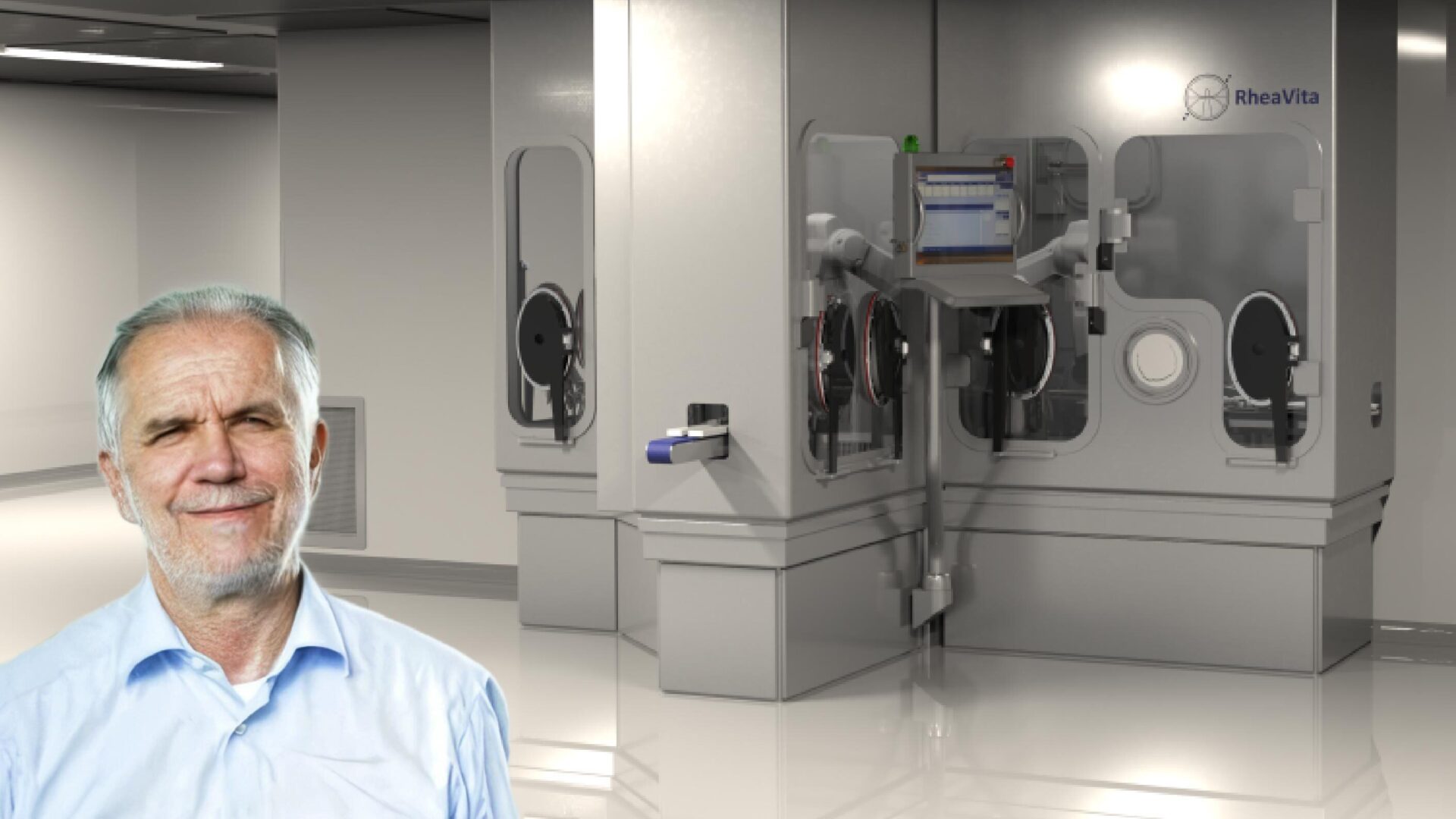Helpful tips for start-ups – what you really need to know before you start

Helpful tips for start-ups – what you really need to know before you start
When Jos Corver started working for himself in 2010, he wasn’t quite the typical start-up. You see, he had come up with an innovative way to improve freeze-drying techniques, and his business RheaVita in Ghent clearly had the potential to grow. In one area though, he was everything but a beginner: he knew which rights he could use to protect his innovative technology and his business. That knowledge was very useful to him when building his business. Would you also like to make a flying start with your start-up? Then read on.
When he started his business, Jos called on two important assets: his knowledge of pharmaceutical engineering and his knowledge of so-called intellectual property rights (or IP rights for short) – in other words patents and trademarks. His knowledge of IP rights gave him something very important: access to financing. Jos: “It’s the first question the VLAIO, or the Flanders Agency for Innovation and Entrepreneurship, and investors ask: what have you done about your IP rights? It’s the most important part of their due diligence – when investors look into your business to verify that everything is correct before they give you any money or support.”
Keep an eye on what information goes outside
RheaVita now owns several international patents and trademarks, as well as an i-DEPOT (a sort of digital safe for ideas and designs). Jos keeps a close eye on his IP rights: “At RheaVita nothing goes out without me having looked at it. I’d recommend that to every start-up: make sure that there’s one person who knows about potentially strategic information and acts as a gatekeeper, monitoring what information goes out.”
Processes and machinery for continuous freeze-drying
RheaVita develops processes and machinery for continuous freeze-drying. It is a technique that extends the shelf life of medicines susceptible to decomposition. Liquid medicines are often only stable for a few hours. Freeze-drying is therefore necessary for transportation at room temperature. As well as laboratory machines, RheaVita provides training and education for customers, laboratory workers and the European Medicines Agency. Jos also regularly gives talks at conferences and workshops. He talks about the strategic choices he makes about what he does and doesn’t talk about.
Go public or better keep it secret?
Jos: “We’ve published a lot and have frequently spoken at conferences. When we do, we keep a careful eye on what we talk about and what we don’t.” Jos can talk freely about the things RheaVita has patents for because all patents become public knowledge after a while. Sometimes though, Jos chooses not to apply for a patent, for particular processes used for example. He prefers to keep that information confidential and does not talk about it then.
"Check in any case whether your product or process infringes on any existing patents."

Freedom to Operate
Jos says he has spent his whole professional life inventing things and dealing with patents: “Patents represent worth, but applying for and maintaining a patent is expensive. As a start-up you often don’t have a lot of money. If you can’t afford to apply for a patent, check in any case then whether your product or process infringes on any existing patents.” Such a check is called a Freedom to Operate analysis (or FTO analysis).
Get expert assistance
When Jos started to apply for his first patent, he already had the necessary experience with patents. Applying for a patent yourself though? That really is something for a specialist, which is why Jos contracted a patent attorney. That is a legal-technical expert who helps companies, inventors and organisations protect their inventions by applying for and managing patents on their behalf. The attorney helped Jos in writing the parts of a patent in which it is stated exactly what is protected.
When he registered the name RheaVita, the logo and the names of a number of machines, Jos did the same. “To start with, I did everything myself for the Benelux, through BOIP, the Benelux Office for Intellectual Property. That was very easy. If you want an international trademark though, it is very helpful then to do that through a specialist trademark office.”
Practical tips for a flying start
“The most important thing,” says Jos summarising, “is that as a start-up you think properly about your IP rights from the beginning, and that you get experts to do the specialist work for you. Go with an adviser who understands what you want to achieve and who you click with. Also, arrange for maintenance of your rights properly. There are specialist offices that can take care of the annual payments for your rights, so that they don’t go unnoticed and expire.”
| Tip from our experts: Is your business still in the start-up phase, and do you want to be smart with your intellectual property like Jos? Take a look at our smart guide for start-ups then. We’ve set it out for you there step by step. |